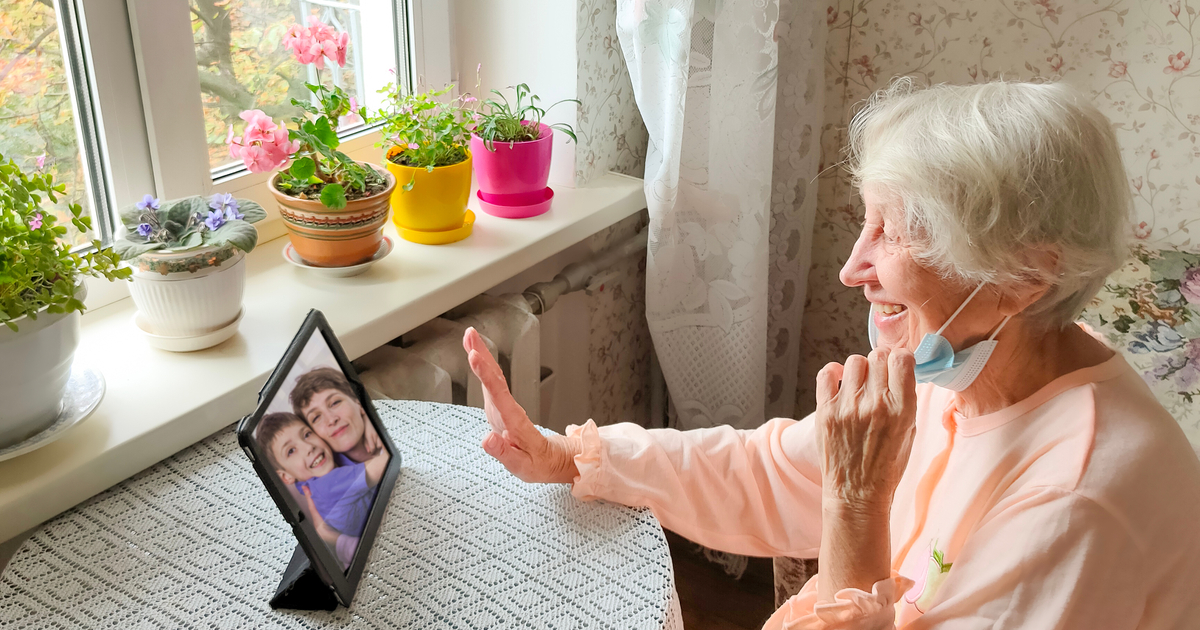According to the National Institute on Aging, if you live an hour or more away from a parent, relative, or friend who needs care, you are a long-distance caregiver. Living long-distance from your loved one creates logistical and emotional challenges.
Logistically, it’s challenging to stay on top of the daily care your loved one is receiving from a distance. You’re not able to see with your own eyes how they are treated, how they respond to the local caregiver(s), and how they are feeling physically and emotionally.
Emotionally, long-distance caregivers often experience feelings of guilt for not being physically present with their loved one, anxiety over the local care being provided, and fear about the future care and longevity of the person they are a distance from.
5 Long-Distance Caregiving Tips
Fortunately, many people have gone before you in giving long-distance care. They offer some excellent advice for you to perform your responsibilities well and feel good about the care you’re providing. Here are five tips to help you in your role as a long-distance caregiver.
1. Get Educated
Many elders have physical and mental disorders. The more you understand any illnesses your loved one has, the better you can care for them. You’ll be more helpful if you understand the disease’s course, treatment options, and specific care needs. This makes communicating with the doctor easier. If possible, one family member should handle conversations with all healthcare providers.
2. Plan Your Visits
When thinking about visiting your loved one, you may feel stressed about all the things you need to do in the time you have. Talk with friends and family members before your visit about any help or respite care you can provide them. Ask your loved one about any activities they’d like to do when you’re there, such as shopping or taking in a movie. Would you like to talk to their physician? Schedule appointments with health care providers, and you’ll feel more relaxed when you’re there.
3. Stay in Touch With Caregivers and Healthcare Providers
With teleconferencing being so prevalent and utilized by so many nowadays, it’s easier than ever to communicate with family, friends, and doctors. Most physicians now participate in tele-medicine programs in which you can have a personal visit with them even though you’re remotely located.
If social workers are involved, communicate regularly with them to get updates, and help with making decisions. Keep a phone and email contact list to be sure you’re keeping everyone updated on your loved one’s needs.
4. Organize Paperwork
There is a mountain of paperwork in everyone’s life. There is insurance company correspondence, utility, mortgage, and other monthly bills which must be paid, insurance policies and wills and trusts to keep track of, banking and investment account statements…the list goes on. Your loved one may not be able to keep up with all of this, but you can help.
Your family member or friend may at first be reluctant to share personal information with you. Assure them that everything will be kept confidential and that you’re only trying to help them. If they still aren’t comfortable, ask them if they’d feel better working with someone else, like an attorney or other family member. What matters is that paperwork is organized, and bills are paid, not so much who does it.
5. Understand Elder Abuse
Older adults who have dementia or need regular care can be subjected to physical, emotional, sexual, or financial abuse, resulting in physical or emotional harm. The person abusing may be a caregiver or facility staff member. Abusive behavior can evolve out of the daily stress of caregiving or be a reaction to aggressive behavior by a person with dementia.
If you suspect abuse, talk to a trusted care provider, the doctor caring for your loved one, or a home health agency. If you think there is immediate danger, contact local adult protective services, a long-term care ombudsperson, or the police.
Long-Distance Caregiving Support
Being a long-distance caregiver has its challenges. Be easy on yourself, knowing that you’re doing the best you can. You may find it helpful to join a support group for caregivers. You can often receive useful tips from others, along with the knowledge that you’re not alone.
Help At Home has been providing personalized in-home care for over 20 years, and we understand long-distance caregiving. If you’re dealing with any of the challenges listed above, we can help. When we talk together, you’ll receive personal attention on your very first call. Contact us today. We look forward to helping you and the special person in your life.





